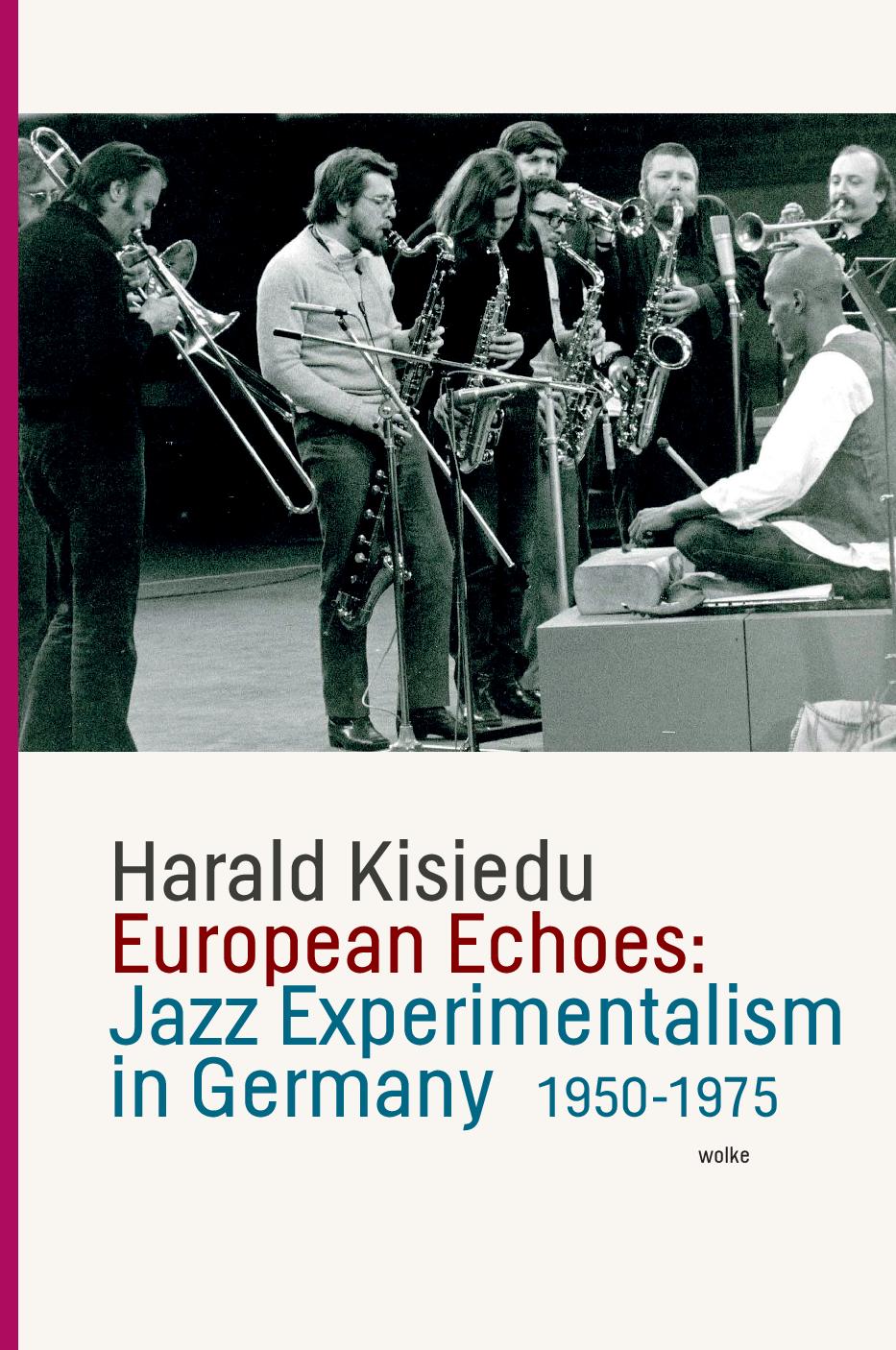
European Echoes: Jazz Experimentalism in Germany, 1950-1975
European Echoes is a historical and interpretive study of the movement of jazz experimentalism in West and East Germany between the years 1950 and 1975 focusing on Peter Brötzmann, Manfred Schoof, Alexander von Schlippenbach, and Ernst-Ludwig Petrowsky. It complicates the narratives advanced by previous scholars by arguing that engagement with black musical methods, concepts, and practices remained significant for the emergence of the German jazz experimentalism movement. In a seemingly paradoxical fashion, this engagement with black musical knowledge enabled the formation of more self-reliant musical concepts and practices. Rather than viewing the German jazz experimentalism movement in terms of dissociation from their African American spiritual fathers, European Echoespresents the movement as having decisively contributed to the decentering of still prevalent jazz historiographies in which the centrality of the US is usually presupposed. Going beyond both US-centric and Eurocentric perspectives, European Echoes contributes to scholarship that accounts for jazz’s global dimension and the transfer of ideas beyond nationally conceived spaces.
“Few studies have understood how improvised music functions as a complex ecosystem, indeed an interlocking one that overlaps and exchanges with other like ecosystems, not just musical ones, but artistic, political, and social ones as well. Perhaps only George Lewis’s A Power Stronger Than Itself and Kevin Whitehead’s New Dutch Swing have managed to capture the intricacies of free music – or what Lewis has termed “experimentalism” – in this way, with the depth and feeling that it deserves. Harald Kisiedu’s magnificent European Echoes: Jazz Experimentalism in Germany, 1950-75 joins the ranks of these groundbreaking books, adding indispensable substance to the current scholarship.“
John Corbett, author of A Listener’s Guide to Free Improvisation
“Harald Kisiedu’s groundbreaking interdisciplinary study trenchantly illuminates how during the Cold War and after, first-generation German and Swiss experimental musicians challenged national, political, conceptual, and racial borders to produce cosmopolitan new forms and practices of free improvisation.“
George E. Lewis, Edwin H. Case Professor of American Music, Columbia University and author of A Power Stronger Than Itself: The AACM and American Experimental Music
“The book is very successful in bringing together its hypothesis with descriptions of the careers of the key musicians. There are many details never before published, certainly not in English…The book makes an important contribution to studies of European jazz.”
Tony Dudley-Evans, londonjazznews.com
“The author is a musician and scholar whose fastidious research provides a much fuller picture of the development of a distinctly European aesthetic and sound that most histories I’ve seen. Focusing on Peter Brötzmann, Alexander von Schlippenbach & Manfred Schoof, and Ernst-Ludwig Petrowsky, Kisiedu expanded my understanding of how the music emerged and mutated, looking beyond simple European vs. African-American binaries, thumbnail narratives, and cliched reductions…Like the best books about music, Kisiedu regularly had me looking up records and dates online, driving me to explore further and get excited about both recordings I already loved and others I’ve never heard.”
Peter Margasak
“…an excellent and valuable book that counters some powerful myths about the supposedly vast gulf between American and European jazz.”
Phil Freeman, Stereogum
“…a fascinating facet of socio-cultural history, treated by Kisiedu with the gravity it deserves…”
Daniel Spicer, Jazzwise
“Musikwissenschaftliche Bücher sind selten unterhaltsam. Das Gegenteil allerdings gelingt Harald Kisiedu mit seiner Darstellung der Entwicklung der deutschen Free-Jazz Szene, einem auf seiner Doktorarbeit an der Columbia Universität basierenden Buch, das man mit großem Gewinn liest…Seltene Fotos aus Privatarchiven, eine ausführliche Bibliografie und Diskografie der verwendeten Quellen machen die 256 Seiten zu einer spannenden Lektüre über eine Zeit intensiver Kämpfe und Auseinandersetzungen von freien Künstlern in unterschiedlichen Gesellschaftssystemen, die, was die Reputation des Free-Jazz und dessen Implementierung als zeitgenössische Musik betraf, gar nicht so unterschiedlich waren.”
Detlef A. Ott, Jazz For Swing Gazette
“…Harald Kisiedu bündelt die Ereignisse um den deutschen Jazz jener Jahre in packender Weise…Viele bis dato unveröffentlichte schwarz-weiß-Fotos aus Privatarchiven vervollständigen ein Wissenskompendium, das eine auftstrebende, nicht nur musik – auch zeithistorisch immens wichtige Epoche exakt und dynamisch erfasst.”
Augusta van Starkey, Jazz Podium